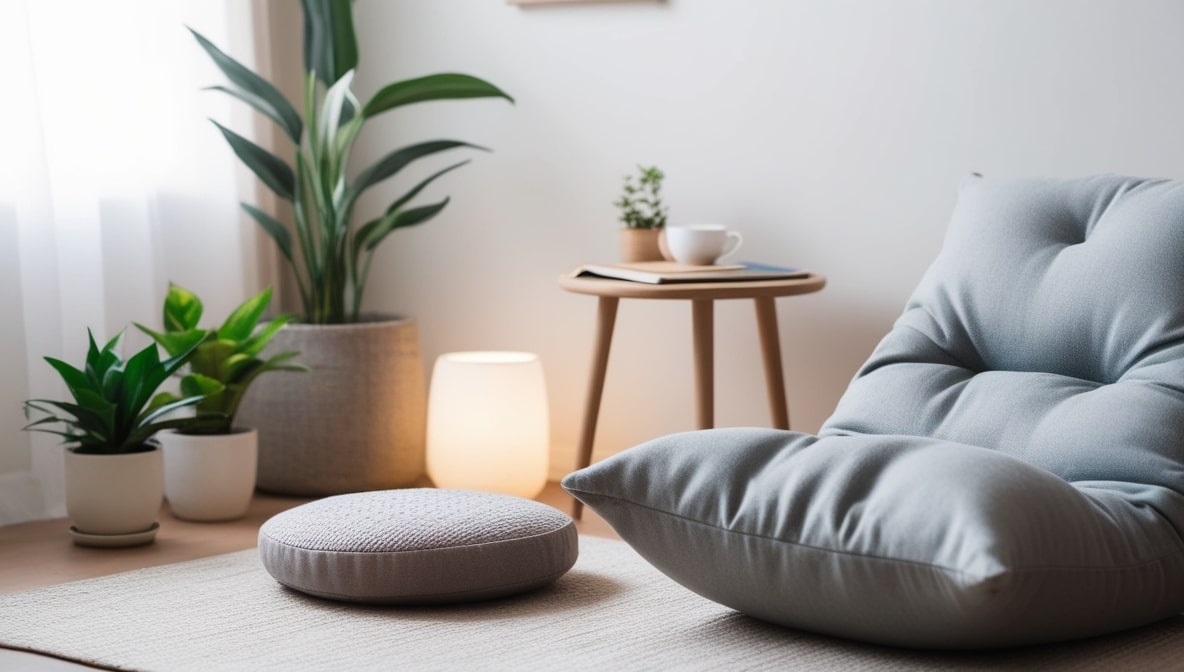Anxiety can feel like a heavy weight on your shoulders, affecting your thoughts, emotions, and daily life. Whether it’s occasional worry or a more persistent anxiety disorder, there are effective strategies and techniques to help manage and alleviate your anxiety. In this article, we’ll explore practical methods for coping with anxiety and finding relief from those overwhelming feelings.
Understanding Anxiety
Before diving into strategies, it’s important to understand what anxiety is. Anxiety is a natural response to stress and can manifest as worry, fear, or nervousness. While occasional anxiety is a normal part of life, chronic anxiety can interfere with your ability to function and enjoy life.
Common symptoms of anxiety include:
- Excessive worry or fear
- Restlessness or feeling on edge
- Difficulty concentrating
- Irritability
- Muscle tension or headaches
- Sleep disturbances
If you experience these symptoms regularly, it’s crucial to seek professional help. In the meantime, these strategies can help manage anxiety and improve your overall well-being.
Effective Strategies and Techniques for Coping with Anxiety
- Practice Mindfulness and MeditationMindfulness and meditation are powerful tools for managing anxiety. These practices involve focusing on the present moment and accepting it without judgment.How to Do It:
- Find a quiet space where you can sit comfortably.
- Close your eyes and focus on your breath or a simple mantra.
- When your mind wanders, gently bring it back to your breath or mantra.
- Start with 5-10 minutes a day and gradually increase the duration as you become more comfortable.
- Establish a RoutineA consistent daily routine can provide structure and predictability, which can help reduce anxiety.How to Do It:
- Create a daily schedule that includes regular times for waking up, eating meals, working, and relaxing.
- Incorporate activities that you enjoy and that help you unwind, such as reading, walking, or listening to music.
- Stick to your routine as closely as possible, even on weekends.
- Engage in Physical ActivityExercise is a natural way to alleviate anxiety and improve your mood.How to Do It:
- Aim for at least 30 minutes of moderate exercise most days of the week.
- Choose activities you enjoy, such as walking, jogging, cycling, or yoga.
- Incorporate both cardiovascular exercise and strength training for overall well-being.
- Connect with OthersBuilding and maintaining relationships can provide emotional support and reduce feelings of isolation.How to Do It:
- Reach out to friends or family members for support.
- Join a support group where you can share experiences and learn from others.
- Engage in social activities or hobbies that bring you joy.
- Practice Deep BreathingDeep breathing techniques can calm your nervous system and help you manage anxiety.How to Do It:
- Sit or lie down in a comfortable position.
- Take a deep breath in through your nose for a count of four.
- Hold your breath for a count of four.
- Exhale slowly through your mouth for a count of six.
- Repeat this process several times.
- Limit Caffeine and AlcoholCaffeine and alcohol can exacerbate anxiety and disrupt your sleep patterns.How to Do It:
- Reduce your intake of caffeinated beverages like coffee, tea, and energy drinks.
- Avoid alcohol, especially before bedtime.
- Set Realistic GoalsSetting and achieving small, manageable goals can boost your confidence and reduce anxiety.How to Do It:
- Break larger tasks into smaller, achievable steps.
- Set specific, realistic goals for yourself and celebrate your progress.
- Seek Professional HelpIf anxiety is persistent or severe, professional help may be necessary.How to Do It:
- Consult a mental health professional for therapy or counseling.
- Consider discussing medication options with your doctor if appropriate.
- Practice Self-CareTaking time for self-care is essential for managing anxiety and maintaining mental health.How to Do It:
- Engage in activities that nurture your well-being, such as taking a bath, reading a book, or practicing a hobby.
- Prioritize rest and relaxation as part of your self-care routine.
- Challenge Negative Thoughts
Cognitive Behavioral Therapy (CBT) techniques can help you identify and challenge negative thought patterns.
How to Do It:
- Notice when you’re having negative or irrational thoughts.
- Challenge these thoughts by questioning their validity and replacing them with more balanced thoughts.
Benefits: Challenging negative thoughts helps shift your perspective and reduces anxiety.
Conclusion
Coping with anxiety requires a combination of practical strategies and self-care techniques. By incorporating mindfulness practices, establishing routines, engaging in physical activity, and seeking support, you can manage your anxiety and improve your mental health. Remember, everyone’s experience with anxiety is unique, so it may take time to find what works best for you. If anxiety persists, don’t hesitate to seek professional help. With patience and persistence, you can find relief and regain control over your life.

